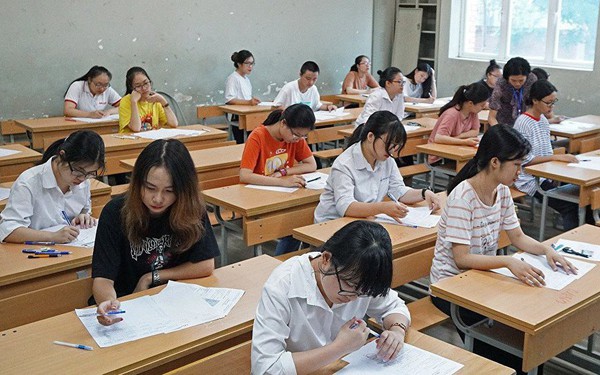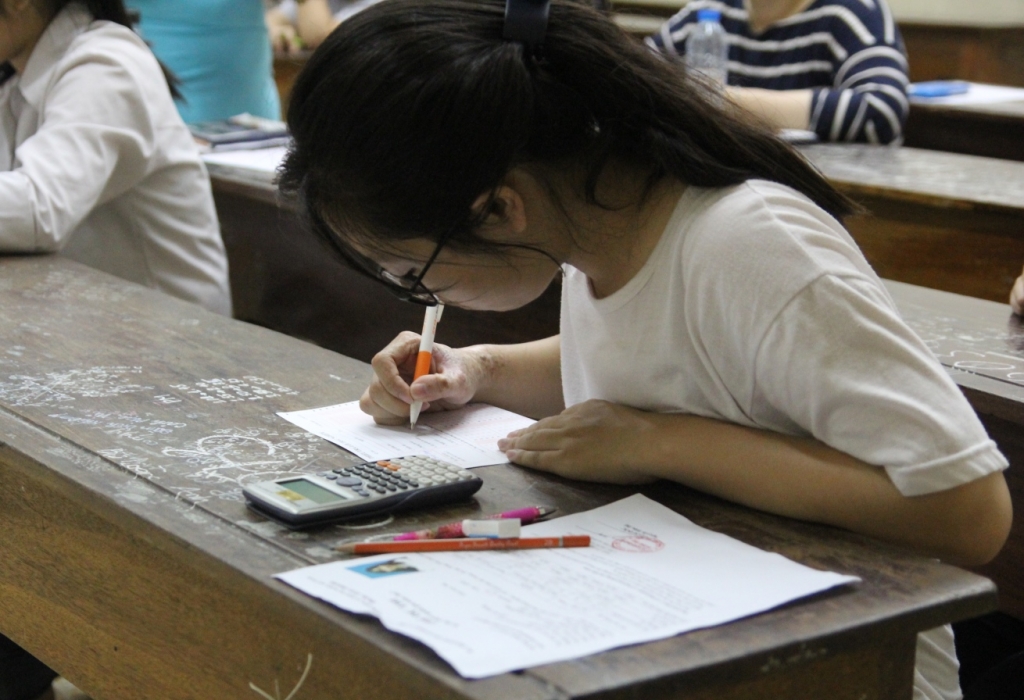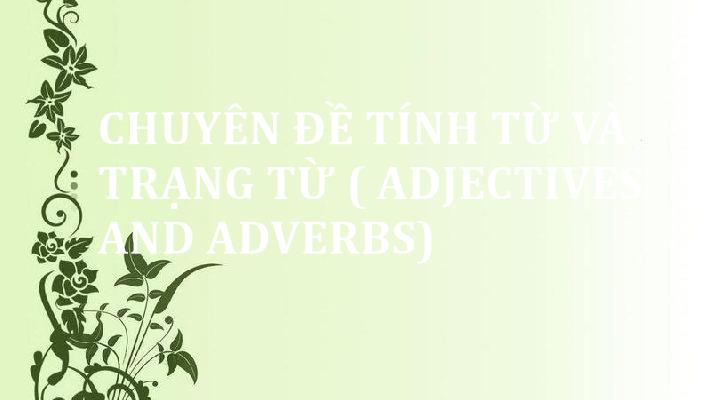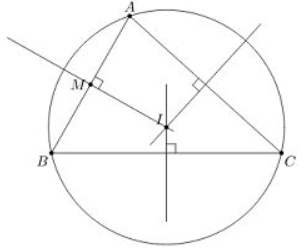Unit 3: ways of socialising
A. Từ vựng quan trọng
- social ['sou∫l]: (adj): thuộc xã hội
Ex : population is social
Dân số thuộc về xã hội.
- society [sə'saiəti] (n): xã hội
Ex: society consist of people who live in
Xã hội bao gồm nhiều người sống ở đó.
- Socialize /'souʃəlaiz/ (v): xã hội hóa, hòa đồng
Ex: an opportunity to socialize with new friend.
Một cơ hội để hòa mình với các bạn đồng nghiệp mới
- Socialization /souʃəlzai'zeiʃn/ ( n) : sự xã hội hóa
- Get / attract someone's attention : thu hút sự chú ý của ai
Ex: she cries to attract people's attention
Cô ấy khóc để thu hút sự chú ý của mọi người.
- Communicate ( v ) /kə'mju:nikeit/ : giao tiếp
Ex: this poem communicate the author's emotion.
Bài thơ này truyền tải cảm xúc của tác giả.
- Communicative (adj) /kə'mju:nikətiv/: có tính giao tiếp
Ex: I don't find Mary very communicative
Tôi thấy Mary không cởi mở lắm .
- Wave ( n ): sóng
(v ) : vẫy
Ex : the storm caused huge wave.
Trận bão gây ra những con sóng khổng lồ.
- Signal ( n, v ) /'signl/: ra hiệu, tí hiệu
Ex: I whistle to signal to him
Tôi huýt sáo để ra hiệu cho anh ấy
.
- Appropriate ( adj ) /ə'proupriit/ : thích hợp
Ex: you will be informed of the details at the appropriate time
Bạn sẽ được thông báo chi tiết vào một thời điểm thích hợp
- Nod ( v) /nɔd/ : gật đầu
Ex : she gave me a nod as she passed
Cô ấy gật đầu chào tôi khi đi qua
- Object to : /'ɔbdʤikt/: phản đối
Ex : I object to her.
Tôi phản đối cô ấy
- marvelous ['mɑ:vələs] (adj) : tuyệt vời
Ex : It is a marvelous adventure.
Đó là một cuộc thám hiểm tuyệt vời
B. Các cụm từ cố định ( phrasal verbs )
1. Talk over : thảo luận
Ex: we will talk over this problem tomorrow.
2. Turn up = appear: xuất hiện
Ex: Don't worry. He'll turn up here.
3. Accuse sb of st/ ving : buộc tội ai
Ex: the police accused him of the robby.
4. Build up: tích lũy
Ex: we should build up knowledge.
5. Get in touch with sb: liên lạc với ai
Ex: she gets in touch with me not often.
6. Come accross: tình cờ gặp
Ex: I came accross John when was going home yesterday.
C. Cấu trúc
1.Either ...or.....either
- Dùng để khẳng định khả năng có thể xảy ra đối với một trong số hai đối tượng được nói tới ( hoặc là xảy ra với đối tượng thứ nhất, hoặc là với đối tượng thứ hai )
Either | Danh từ | Or | Danh từ |
Đại từ | Đại từ |
Ex: Hung wants to ask either you or me to help him repair his computer.
Either her parents or she is invited to the party tonight.
Ghi chú: Khi gặp liên từ ''either...or...'' đứng ở vị trí chủ từ thì động từ được chia theo chủ từ gần động từ nhất ( tức là động từ được chia theo chủ từ đứng sau or ).
Ex: Either you or I am right.
2. Cấu trúc khác
+ Let sb do sth: để ai đó làm gì
Ex : My mother never lets me go out without her.
+ See sb do sth: nhìn ai đó làm toàn bộ một hành động ( nhìn từ đầu đến cuối )
Ex: I see your father get on the bus.
+ See sb doing sth nhìn thấy ai đó đang làm gì ( nhìn thấy một phần hành động )
Ex: I see my teacher approching me.
C. Ngữ pháp : Câu tường thuật trực tiếp gián tiếp trong tiếng anh
+ Khái niệm
- Câu trực tiếp ( direct speech ) là sự lặp lại chính xác từ ngữ của người nói
- Câu gián tiếp ( reported speech) là lời tường thuật lại lời của người nói
+ Ba nguyên tắc khi chuyển từ trực tiếp sang gián tiếp
- Đổi ngôi, đổi tân ngữ
- Lùi thì
- Đổi cụm từ chỉ thời gian, nơi chốn
Quy tắc | Trực tiếp | Gián tiếp |
THÌ | Hiện tại đơn ( v/es/Vs) | Qúa khứ đơn ( Ved ) |
Hiện tại tiếp diễn ( is/ are/ am + ving ) | Quá khứ tiếp diễn ( was / were Ving ) | |
Hiện tại hoàn thành ( have/ has + P2 ) | Quá khứ hoàn thành ( had P2 ) | |
Quá khứ đơn ( Ved) | ||
Quá khứ tiếp diễn ( was / were + Ving ) | Quá khứ hoàn thành tiếp diễn ( had been + Ving ) | |
Quá khứ hoàn thành | Quá khứ hoàn thành | |
Tương lai đơn ( will V ) | Tương lai trong quá khứ ( would V ) | |
Tương lai gần ( is /are /am going to + V ) | Was / were + going to V ) | |
Động từ khuyết thiếu | Can May must | Could Might Must / had to |
Trạng từ chỉ nơi chốn | This That | That |
These | Those | |
Here | there | |
Trạng từ chỉ time | Now | Then |
Today | That day | |
Yesterday | The day before / the previous day | |
The day before yesterday | Two days before | |
Tomorrow | The day after / the next ( following) day | |
The day after tomorrow | Two day after | |
Ago | Before | |
Chủ ngữ, tân ngữ | I / me | She/ he / her / him |
We / our | They / them | |
You | I/ we / me / us |
+ Cách chuyển câu trực tiếp sang câu gián tiếp
1. Câu trực tiếp ở dạng câu kể
=.> Câu gián tiếp
S | Said | That | clause |
Said to sb | |||
Told sb |
Ex: “I’m going to visit Japan next month”, she said. → She said that she was going to visit Japan the following month.
“He picked me up yesterday”, Lan said to me. → Lan said to me that he had picked her up the day before.
2. Câu trực tiếp ở dạng câu hỏi
Câu hỏi yes / no question
=> Câu gián tiếp
S | Asked | If / whether | Clause |
Asked sb | |||
Wondered | |||
Wanted to know |
Ex: “Do you love English?”, the teacher asked. → The teacher asked me if/whether I loved English.
“Have you done your homeworked yet?”, they asked. → They asked me if/whether I had done my homework yet.
Lưu ý: Nếu trong câu trực tiếp có từ “OR NOT” thì câu gián tiếp bắt buộc phải dùng WHETHER
Ex: “Does she like roses or not?”, he wondered. → He wondered whether she liked roses or not.
Câu hỏi WH- questions
=> Câu gián tiếp
S | Asked | Clause ( wh + S + V ) ( k đảo ngữ trong câu này ) |
Asked sb | ||
wondered | ||
Wanted to know |
Ex: “Where do you live, Nam?”, asked she. → She asked Nam where he lived.
3. Câu trực tiếp ở dạng câu mệnh lệnh ( Don't + V, please )
=> Câu gián tiếp
S + asked / told / ordered / advised / wanted / warned + sb + (not) to Vinf
Ex: “Open the book page 117, please”,the teacher said. → The teacher asked us to open the book page 117.
Ex; “Don’t touch that dog”, he said. → He asked/told me not to touch that dog.
D. Bài tập
TỰ LUẬN
1.He said, "I like this song."
=> He said that he liked that song
2. "The film began at seven o'clock," he said.
=> He said that the film had begun at seven o'clock
3. "I never make mistakes," he said.
=> He said that he never made mistakes
4. "I don't speak Italian," she said
=> She said that she didn't speak Italian
5. "Where is your sister?" she asked me.
=> She asked me where my sister was
6. "Where have you spent your money?" she asked him
=> She asked him where he had spent his money
7. "What are they doing?" she asked.
=> She wanted to know what they were doing
8. "How do you know that?" she asked me.
=> She asked me how I knew that
9. "When will we meet again?" she asked me.
=> She asked me when we would meet again
10. "Why don't you help me?" she asked him.
=> She wanted to know why he didn't help her
11. "Who knows the answer?" the teacher asked.
=> The teacher wanted to know who knew the answer
12. "Did you see that car?" he asked me.
=> He asked me if I had seen that car
13. "Can you meet me at the station?" she asked me.
=> She asked me if I could meet her at the station
14. "Don't touch it," she said to him.
=> She told him not to touch it
15. "Don't go out without me," he begged her.
=> He begged her not to go out without him
16. "Stop talking, Joe," the teacher said.
=> The teacher told Joe to stop talking
17. "Fill in the form, Sir," the receptionist said.
=> The receptionist asked the guest to fill in the form
BÀI TẬP TRẮC NGHIỆM
Trọng âm
1. A. social B. Meter C. notice D. Begin
['sou∫l] ['mi:tə] ['noutis] [bi'gin]
2. A. whistle B. table C. mother D. Receive
['wisl] ['teibl] ['mʌðə] [ri'si:v]
3. A. decision B. reference C. refusal D. Important
[di'siʒn] ['refərəns] [ri'fju:zl] [im'pɔ:tənt]
4. A. attractive B. sociable C. dynamic D. Conservative
[ə'træktiv] ['sou∫əbl] [dai'næmik] [kən'sə:vətiv]
5. A. romantic B. following C. different D. physical
[rou'mæntik] ['fɔlouiη] ['difrənt] ['fizikl]
Hoàn thành câu
6. The boy waved his hands to his mother, who was standing at the school gate, to _______ her attention.
A. attract B. pull C. follow D. Tempt
=> attract / catche someone’s attention
7. If something _______ your attention or your eye, you notice it or become interested in it.
A. pays B. allow C. catches D. Wav
8. After a _______ hesitation, she began to speak with such a convincing voice.
A. rude B. slight C. small D. impolite
9. He is one of the most ____ bosses I have ever worked with. He behaves rudely to not only me but also others in the staff.
A. thoughtful B. impolite C. attentive D. communicative
10. In many cultures, people signify their agreement by _______ their head.
A. turning B. raising C. pointing D. nodding
11. There was a _______ tremble in her voice, which showed that she was very nervous at that time.
A. slight B. slighted C. slightly D. slightness
12. If a boss wants to have a well-qualified staff, he should have to pay his employees _______.
A. appropriate B. appropriately C. appropriation D. appropriating
13. Mrs. Pike was so angry that she made a _______ gesture at the driver.
A. rude B. rudeness C. rudely D. rudest
14. _______ nonverbal language is _______ important aspect of interpersonal communication
A. The / Ø B. A / the C. The / a D. Ø / an
15. Balzer, ___ linguistic researcher, reported that approximately 75% of classroom management behavior was nonverbal.
A. a B. an C. the D. Ø
16. I have never seen such a beautiful dress _______ you before.
A. of B. on C. for D. in
17. Small children are often told that it is rude to point _______ other people.
A. on B. to C. at D. for
18. - You look great in this new dress. - ________.
A. With pleasure B. Not at all
C. I am glad you like it D. Do not say anything about it
20. Peter said that he had lived in London four years _______.
A. ago B. before C. later D. then
21. The guest told the host that _______.
A. I must go now B. he must go now
C. he had to go now D. he had to go then
22. The teacher told Joe _______.
A. to stop talking B. stop talking
C. stops talking D. stopped talking
23. She said she _______
A. was very tired last night B. was very tired the night before
C. had been very tired last night D. had been very tired the night e24. Emily said that her teacher _______ to London _______.
A. will go / tomorrow B. went / tomorrow
C. would go / the next day D. had gone / the next day







